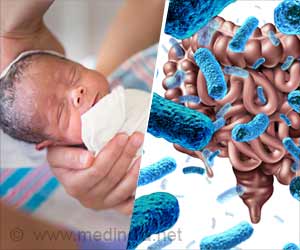Preterm baby Shivnaya’s survival and growth was assured by the endless efforts of her doctors at Surya Mother and Child Hospital, Wakad, Pune.
- A premature baby girl born at 24 weeks (6 months) has set a record for being the youngest and tiniest infant to survive a premature delivery in India
- Survival alone is not enough, and long-term follow-up of such babies is critical
- Doctors are ensuring that the baby achieves growth and developmental milestones on time
India’s Smallest Preterm Infant
After seven months, including several weeks in the hospital at Surya Mother and Child Super Specialty Hospital, the newborn girl, Shivnaya, now weighs 2130 grams (2.13 kgs).According to Dr. Sachin Shah, Director of Neonatal and Pediatric Intensive Care Services at Surya Hospital in Wakad, this was possibly the first example in the country in which a premature baby weighing 400 grams and 30 cm in length was saved and discharged after a 94-day stay.
Long-Term Follow-Up of Premature Babies
The most recent or last such incidence documented in the country was in Ahmedabad in 2019, when a baby weighing 492 gms was born at 22 weeks. Dr. Umesh Vaidya, regional medical director, of neonatology, at Cloud Nine Hospitals, praised the team of neonatologists who saved Shivnaya, saying that survival alone is not enough and that long-term follow-up of such babies is critical. Shivnaya or Shivnaya (check spelling in all places) was admitted to Surya Hospital’s tertiary care level III newborn intensive care unit shortly after her birth on May 21, 2022. Dr. Amita Kaul, Dr. Jayant Khandare, Dr. Ganesh Shiwarkar, and Dr. Deepak Singh collaborated with Shivnaya, as did a nursing team that comprised Rajni Londhe, Swapnali Kapare, Shobha Dongre, and Nikita Khekare. Babies like Shivnaya are extremely delicate and require careful care, including home oxygen in addition to regular medication and nebulisation, according to experts.Challenges of Premature Delivery
Shivnaya’s case was unique for Surya hospital, which is used to dealing with premature birth cases and boasts a 97% survival rate, considering the gestational age, baby’s weight, immature organs, and several other critical conditions that affected her, including respiratory distress syndrome, anemia, and others, according to doctors. The infrastructure and equipment in hospitals are mainly constructed for kids born at the correct gestation period - 40 weeks - and hence the line of treatment becomes a difficulty in situations of extreme-premature delivery, they added.Special Mechanical Support for New-born’s Undeveloped Organs
Dr. Shah, on the other hand, was optimistic about the baby’s chances of surviving, according to Ujwala, who, along with her husband Shashikant, sought advice on how to feed the infant. The most difficult hurdle was the new-born’s undeveloped organs, which required mechanical support to enable the baby to heal. Surya hospital officials had to adjust the equipment available to assist with organ support to accommodate the baby’s tiny weight and frail skin.The baby was hooked up to a ventilator and was given drugs to help her lungs operate. She required ventilation for the first few weeks, including an advanced method of high-frequency ventilation. She also required non-invasive respiratory assistance. She was breathing normally after 88 days. To sample and give nourishment, special catheters were implanted into her belly button. “Feeds were started through a specially designed tube inserted from mouth to stomach and increased slowly depending on the tolerance level. The baby reached full feed on day 16 via a feeding catheter. Oral feeds were initiated on day 76. The baby slowly started putting on weight and reached 1000 grams on day 51,” said a doctor.
Her skin was frail; therefore, she was housed in a special incubator to avoid disintegration and fluid loss. “We are ensuring that the baby meets all her growth and developmental milestones,” said Dr. Shah.
Shivnaya was discharged from the hospital on August 23, 2022.
Source-Medindia














